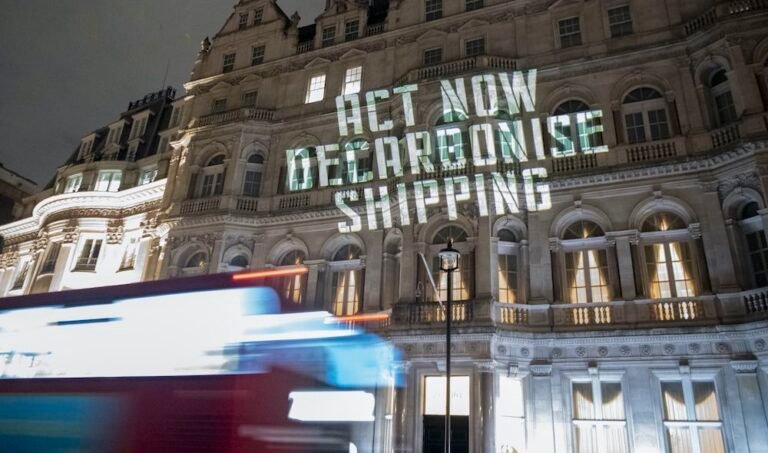Green Talks at the International Maritime Organization: The African Perspective
James Mnyupe, presidential economic advisor and head of the Namibian Green Hydrogen Program and Cynthia Kariuki from the Africa Green Hydrogen Alliance Coordination Office, give Splash readers the African take from this week’s crucial green talks at the London headquarters of the International Maritime Organization.
African nations suffer disproportionately from the devastating impacts of climate change yet have historically contributed very little to the greenhouse gas emissions that are warming our planet.
International shipping is responsible for 3% of those emissions. The UN body which regulates the sector, the International Maritime Organization (IMO), and its member states have a once-in-a-generation opportunity this week to agree a meaningful emissions levy which can shift the sector away from heavy fuel oil to cleaner alternatives in line with its target of net-zero emissions by 2050.
If the IMO takes brave decisions at its April meeting, ships will soon start using green fuels made with renewable electricity in countries such as Egypt, Kenya, Morocco, Mauritania, Namibia, and South Africa. If the IMO and its members fail to demonstrate leadership, we are likely to see continued use of fossil fuels for international shipping even though significantly cleaner alternatives exist.
Africa has the opportunity to become the renewable energy breadbasket of the world
Liquefied natural gas (LNG) is being used by some ships and can cut emissions by 10-19%. Biofuels can also be used, processing agricultural produce, but this requires a lot of land, which could be used for food production. By far the cleanest option is to use renewable energy to split water into hydrogen and oxygen, then use the hydrogen to produce ammonia, which can be used to propel our ships.
At the moment, green ammonia and other so-called e-fuels like green methanol are more expensive than heavy fuel oil. As we build large renewable energy facilities across our continent, the price of green fuels will fall.
To help scale these green fuels, there is growing agreement that the IMO should introduce a levy on emissions. It is essential that this levy is high enough to incentivize the uptake of green fuels and provide funding to lower-income countries for their own just and equitable energy transition.
Kenya’s Climate Envoy Ali Mohamed has backed a levy of between $150 to $300 per tonne of emissions. As he said this week: “Anything less risks stalling progress.”
Another option on the table, combining a low levy and a carbon trading system, would not generate the green fuel uptake or funding needed. This was made clear at the recent Africa Strategic Summit on Shipping Decarbonization in Nigeria where energy expert Dr. Dola O concluded: “The global shipping industry is at a critical turning point. As the IMO prepares to finalize the emissions reduction strategy, it must step up and take the helm of its maritime future.”
Africa has the opportunity to become the renewable energy breadbasket of the world. The Africa Green Hydrogen Alliance and the Green Hydrogen Organization have estimated that 4m jobs could be created and 60m tonnes of green hydrogen produced annually on the continent.
Our countries can supply the green fuels, we just need the IMO to ensure the demand is there.

